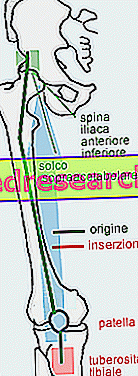The food alteration consists of a set of phenomena, usually accidental, that take place in the food, changing, at times very deeply, the characteristics of genuineness, harmlessness and digestibility. Often, these are cases in which human conduct (for example due to inattention or forgetfulness) may have caused the episode, but culpably and not maliciously.
Food alterations can be classified as natural, voluntary and fraudulent.
Natural alterations : bad or prolonged conservation (rancidity, decomposition, acidity); very often they are caused by the lack of sensitivity of the consumer who, more often than one might think, claims, for example, that the three-month deadline for long-term milk

For all these reasons many food poisonings are due to the negligence of the consumer, rather than to that of the producer.
Voluntary alterations: chemical, physical or biological technological treatments applied to improve the quality or shelf life of the product; very often these are positive alterations, such as milk pasteurization or the addition of ascorbic acid (vitamin C) to the flour, which improves its shelf life and facilitates the baking process.
Fraudulent alterations : food adulteration, adulteration and counterfeiting.
SOPHISTICATION
The composition of a food is modified, partially replacing some elements of the food substance with the addition of lower quality and value foods.
ADULTERATION
A food substance is adulterated when a change in its composition is introduced by man, following mixing with other substances of inferior quality or following deprivation of elements useful or characterizing the product.
FORGERY
The food is marketed with a composition or with values different from those declared. The deception in which the consumer can be drawn may be explicit or implicit. Explicit if the label declares false, implicit when the type of packaging, the shape, the brand, even in the absence of an objective false declaration, can mislead the consumer.
Food alterations also depend on the presence of xenobiotics, that is to say, chemical substances foreign to the biological system of origin. These alterations can be positive for human health (the addition of vitamin C to flour) or negative (pesticide residues, hormones, heavy metals, etc.).



